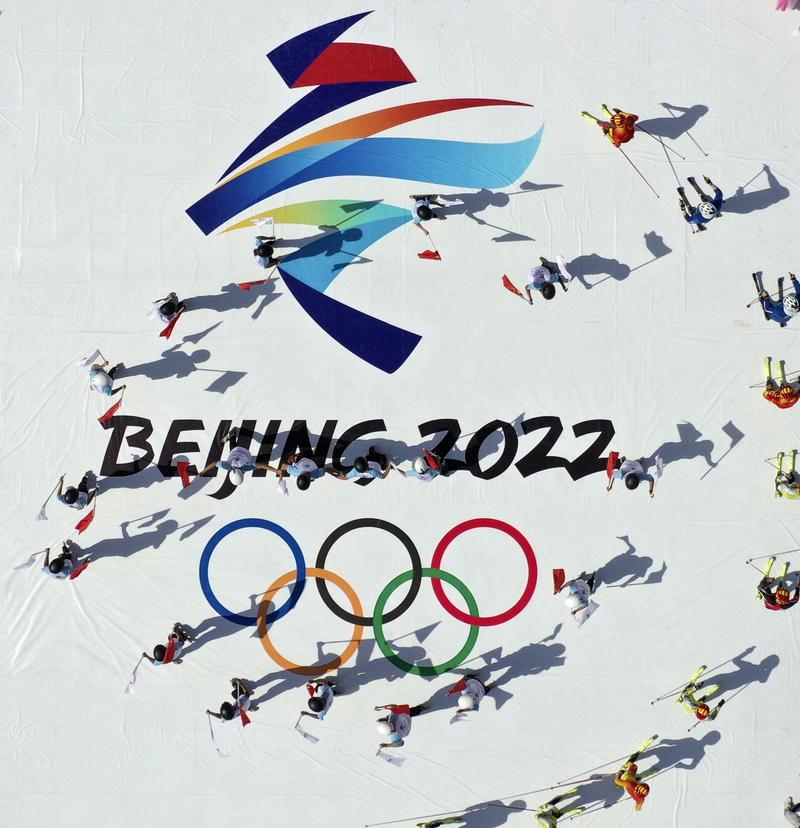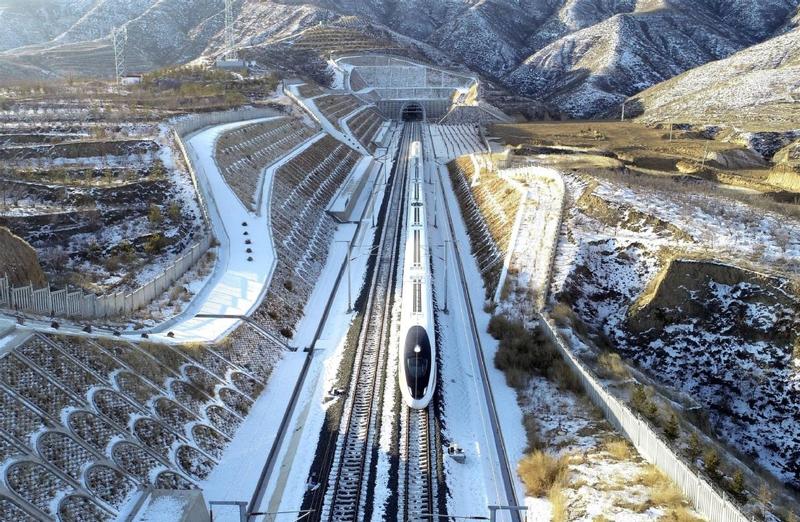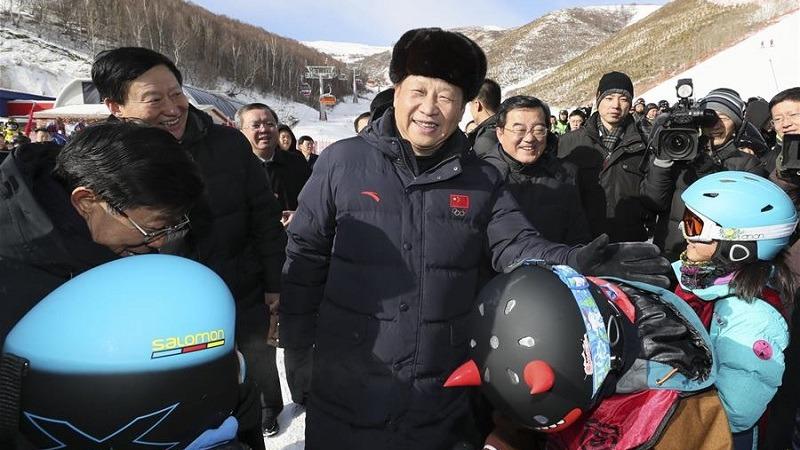 Aerial photo taken on May 11, 2019 shows the performance during the 1000-day countdown celebrations of the Beijing 2022 Olympic Winter Games held in Chongli of Zhangjiakou City, north China's Hebei Province. (XING GUANGLI / XINHUA)
Aerial photo taken on May 11, 2019 shows the performance during the 1000-day countdown celebrations of the Beijing 2022 Olympic Winter Games held in Chongli of Zhangjiakou City, north China's Hebei Province. (XING GUANGLI / XINHUA)
With Tuesday marking the two-year countdown to the Beijing 2022 Winter Olympics, preparations for the Games are continuing apace - both athletically and logistically.
Undeterred by the ongoing novel coronavirus outbreak, Chinese athletes are maintaining their training and competition schedules against all odds. Relevant governing bodies are also attempting to limit the spread of the virus to a minimum with a series of strict measures.
ALSO READ: Envoy: China takes security of 2022 Beijing Olympics seriously
With virus control now a priority, no confirmed or suspected cases have been discovered among all China's national teams, according to Liu Guoyong, vice-president of the Chinese Olympic Committee.
Teams are training in isolation to ensure a "clean" environment for all athletes.
However, many sporting events in China have been postponed or canceled, such as the 14th Chinese National Winter Games in Inner Mongolia autonomous region, and a men's Alpine Ski World Cup meet, which had been scheduled to take place at Yanqing's 2022 Olympic course near co-host city Zhangjiakou in Hebei province.
China's General Administration of Sport has also taken measures to ensure the safety of athletes competing abroad.
Aiming high
On July 31, 2015, Beijing and Zhangjiakou weree announced as the host cities for the 2022 Winter Olympics.
At the moment, China is on course to qualify directly for 61 events out of 109, while the remaining 48 will be decided through ranking points
Since then, China has been pursuing ambitious targets to have full participation in all 109 events and to achieve its best ever result at a winter Games.
Despite scoring just one gold medal at Pyeongchang 2018, the Chinese delegation made strides in terms of participation, featuring in 53 events - its highest total to date.
Still, more than doubling its representation at the 2022 Games is a major challenge for China.
At the moment, China is on course to qualify directly for 61 events out of 109, while the remaining 48 will be decided through ranking points.
Featuring in all events is all the more difficult considering around a third of Winter Olympic events had not been widely practiced in China before it was awarded the 2022 Games.
With this in mind, China has looked overseas for guidance, with 170 foreign nationals now working on the coaching staff of national teams - up from just two in 2014.
A number of world-famous coaching teams have established cooperation with China's Winter Sports Administrative Center, including Canadian figure-skating guru Brian Orser, who guided South Korea's Kim Yuna and Japan's Yuzuru Hanyu to Olympic gold medals.
 The new Beijing-Zhangjiakou high-speed rail track. (PHOTO / XINHUA)
The new Beijing-Zhangjiakou high-speed rail track. (PHOTO / XINHUA)
Besides joining forces with world-renowned coaches, China has also moved forward in technological research and development, while maintaining a zero-tolerance stance against doping.
China is also working on streamlining its pool of elite athletes.
Ni Huizhong, director of the China's Winter Sports Management Center, revealed that the number of athletes preparing for Beijing 2022 dropped from over 4,000 to 1,153 last year.
Recent results prove that the strategy has been at least partially successful, with medal tallies more than double those at the same stage in the previous season.
However, Ni cautioned: "We still have clear weaknesses and disadvantages, especially in some events where we are encountering a big crisis," he said.
Lasting legacy
Beyond achieving full participation and its best ever result at Beijing 2022, China is also focused on ensuring a lasting post-Games winter sports legacy.
 Chinese President Xi Jinping encourages children attending skiing winter camps at Genting Ski Resort as he inspects preparatory work for Beijing 2022 Winter Olympic Games in Zhangjiakou City, north China's Hebei Province, Jan 23, 2017. (LAN HONGGUANG / XINHUA)
Chinese President Xi Jinping encourages children attending skiing winter camps at Genting Ski Resort as he inspects preparatory work for Beijing 2022 Winter Olympic Games in Zhangjiakou City, north China's Hebei Province, Jan 23, 2017. (LAN HONGGUANG / XINHUA)
According to Ni, China's Winter Sports Management Center is considering establishing a second-string national team, aiming to maintain the development of Chinese winter sports after Beijing 2022.
Around 300 athletes are expected to be recruited onto the team, which will have specific training bases, staff members and plans.
Another anticipated benefit is the increase in expertise, thanks to China's work with foreign experts.
READ MORE: Zhangjiakou ski venues to be ready this year
"This is an important target that China's Winter Sports Management Center is focusing on during the Beijing 2022 preparations," said Ni.
With the country also endeavoring to involve 300 million people in winter sports in the build-up to the Games, the Winter Sports Management Center is encouraging stronger mass participation on the ice and snow through a multitude of promotional activities.


